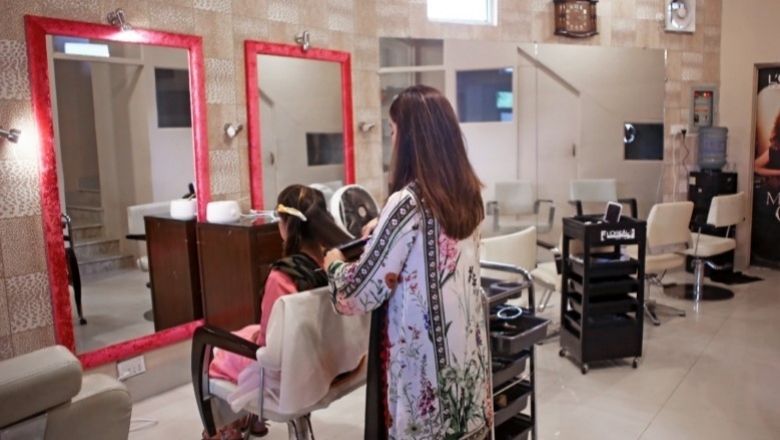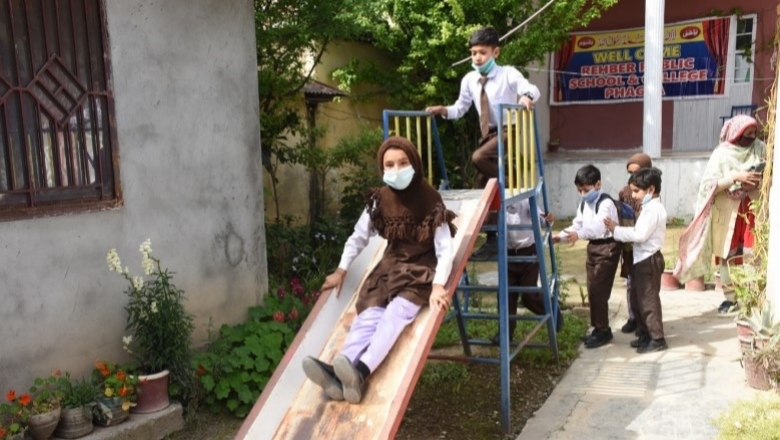Challenge
COVID-19 exacerbated Pakistan’s underlying health challenges such as low immunization rates, malnutrition, and maternal mortality. At the same time, the closure of all non-essential businesses in April 2020 and the disruption of domestic supply chains created more problems for already-stressed micro, small and medium enterprises (MSMEs) and threatened jobs, especially those in the informal sector.
Approach
The ERKP is financed through a multi-donor trust fund (MDTF) and provides matching grants to crisis-affected MSMEs, benefiting all types of small businesses from private schools to tour operators and beauty salons. In 2017, the project received $19 million in additional financing so that it could also support the province’s competitive sectors, including tourism and agribusiness. With the COVID-19 pandemic, ERKP was restructured in June 2020 to align it with the provincial government’s social and economic strategy for coping with COVID-19 and with the Bank’s operational framework for responding to the pandemic in Pakistan. As part of its response to the KP’s request for COVID-19 support, the Bank introduced new flexibility in the matching grants program under the ERKP. This has allowed the clients to process the grants applications from the pandemic hit MSMEs on priority basis to support immediate jobs restoration.
Results
To help combat COVID-19, the project procured and deployed 55 ventilators, personal protection equipment, N95 masks, and nebulizers to various public sector health facilities across the province between June 2020 and October 2020. Matching grants for 15 SMEs affected by COVID-19 were approved in November 2020.
Since 2011, ERKP has provided matching grants to 2,723 SMEs, of which 206 are owned by women, resulting in the direct and indirect creation or restoration of more than 13,000 jobs. Of these, more than 150 direct jobs were restored through support to COVID impacted MSMEs.
To improve tourist facilities in recent years it has provided equipment for waste collection, waste management and snow clearing during 2018-2019. It has also supported the upgrade of 15 tourist rest houses, four tourist information centers (TICs) and a youth hostel during the same time period. It is now in the process of providing additional equipment including trash bins, visitor benches, display screens, portable toilets, sight-seeing carts and a traffic counting system.
Bank Group Contribution
The Bank initially approved $20 million through the Pakistan MDTF to implement the ERKP in 2011. In 2017, the project was restructured with additional financing of $19 million through the same MDTF to support the expansion of the project and include support to the province’s competitive sectors such as tourism and agribusiness. As of March 15, 2021, the project stands fully disbursed with an implementation progress rating of ‘Satisfactory.’
Partners
There is a strong partnership among key development players, through the MDTF, committed to strengthen KP’s economy.
The project’s success with job creation and the operational efficiency of the matching grants system has encouraged the KP provincial government to divert some of its own resources to prolonging the support activities. In addition, the ERKP paved the way for sustained engagement in the province’s tourism sector through the IDA-financed KP Integrated Tourism Development Project (KITE), which became effective in November 2019.
Beneficiaries
Beneficiaries of grants made available under the project have seen their businesses enriched. “This grant has been instrumental in boosting the morale of my teachers and students alike. I’ve also been able to win the confidence and interest of parents.” (Ms. Safina Bibi, owner/principal of Rahbar Public School at Phogla, Attershish in Mansehra district of KP).
“I am grateful that the grant has not only helped me to expand my business but has also allowed me to give jobs to other girls, like Sadia, who were unemployed.” (Ms. Sadia Saeed, Owner of a beauty salon, Peshawar).

